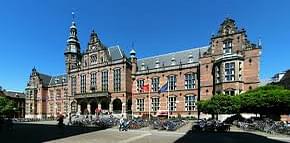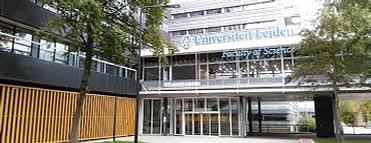Master of Science [M.S] (Computer Simulations for Science and Engineering (COSSE))
Field of Study:
₹20.7 L/Yr
Tuition Fees
| Year | 1st Year Fees |
|---|---|
| Tuition Fees | ₹2069364 (EUR 20560) |
Other Expenses
| Head | Avg Cost Per Year |
|---|---|
| Accomodation | ₹1232963 (EUR 12250) |
| Food and travel | ₹318130 (EUR 3160.76) |
Previous Year Tuition Fees
| Year | 1st Year Fees |
|---|---|
| 2021 | ₹2095332 (EUR 20818) |
Important Dates
|
Date |
Event |
| October 15 | Intake of applications for MSc programs begins |
| April 1 | Application deadline |
| June 1 | Confirmation Statement deadline |
| July 1 | Full payment deadline |
| September 1
|
Academic year begins |
| 1st week of September
|
First semester begins |
The COSSE Master's programme is a two-year programme including compulsory mobility for the students. They will enter in one of the universities and continue the second year at one of the other universities in another country. The first 60 ECTS credits are taken at the first year university and the remaining 60 ECTS credits are taken at the second year university.
The programme includes three semesters of courses followed by the fourth research semester spent on the Master's Thesis (30 ECTS credits) under the supervision of both attended university. The students receive doubles degrees, i.e a degree from both the home and the host university.
The COSSE-students will become very familiar with the tools of CSE, which includes:
- mathematical modeling techniques
- simulation techniques (discretizations, algorithms, data structures, software in CSE)
- analysis techniques (data mining, data management, visualization)
The students will become experts in the generic tools as applied to one of the specializations offered by the universities. Upon graduation from COSSE the students have acquired
- familiarity with selected scientific and engineering application areas and their mathematical models
- a knowledge base and skills ranging from formulation of a mathematical model to constructing software for high-performance computer architectures
- effective communication skills for interacting with the professional community as well as management and the society at large, on written and oral presentations
- a degree of independent and critical appraisal of the capability and limitations of, and results produced by, computational modeling.
As for career opportunities, a COSSE Master's degree opens several opportunities:
- to join the international research community by continuing PhD-studies in CSE and science/engineering fields where simulation and high-performance computing is applied: fluid dynamics, electromagnetics, molecular physics, quantum chemistry, material science, chemical engineering, structural mechanics, biocomputing, and many more
- to employment in "end-user" high-tech industry and "provider companies", using and development tools for advanced computer simulation in pharmaceutical, automotive, materials, aeronautics, power generation, micro-electronics, etc. industry.
- to start new innovative companies which are based on CSE expertise.
Eligibility & Entry Requirement
Academic eligibility:-
- A BSc degree in a field closely related to the MSc program.
- Cumulative Grade Point Average (CGPA) of at least 75% of the maximum grading scale, as per the university’s grading system.
- Proof of English language proficiency. A TOEFL score of a minimum score of 90 OR An overall score of at least 6.5 on the IELTS (academic version).
Indian student eligibility:-
- A graduation diploma or degree is required with a minimum of cumulative grade point average (CGPA) of 75% of the scale maximum. The program must be 4 years long and closely related to the program to be pursued for masters. If the university follows a class system, then candidate is required to have first-class with distinction or first class.
- For the English language proficiency certificate, following test scores are accepted:
- TOEFL: overall score of at least 90 with a minimum score of 21 for each section.
- IELTS (academic version): overall score of at least 6.5 with a minimum of 6.0 for each section.
TOP Scholarships
| Scholarship name | Award amount | Eligibility |
|---|---|---|
| - | - | - |
| - | - | - |
| - | - | - |
Key Resources for Your Study Abroad Journey
Course Guides
VISA & Work Study
VISA
- The MVV Visa allows a person to stay in the Netherlands for a period of 90 days. A Residence Permit is for a stay of fixed period in the Netherlands for study purposes. The cost of applying for MVV Visa and/or residence permit is 227.3 $. After receiving confirmation of enrolment from the university, follow the steps below to apply for a visa or residence permit:-
- Submit the confirmation statement at MyTUDelft. Submit it before the deadline as given in Admission Letter.
- Follow the instructions given in your financial letter. It includes the amount to be paid to TU Delft to complete the admission process, only after which process for visa or residence permit can begin.
- Following documents are required for your visa and/or residence permit:
- Declaration of study residence permit
- Antecedents certificate
- Declaration of intent to undergo a TB test. For a non-EU/EFTA student, there is a three months deadline for TB test from the onset of your study programme.
- You can check the status of your MVV Visa or residence permit at MyTUDelft.Generally, it takes 4 weeks for the process to complete.
Scholarship Grants & Financial Aids
| Name | Scholarship Per Student | Level of Study | Type | |
|---|---|---|---|---|
| TU Delft Holland Scholarship | Scholarship per student₹ 5.4 L/Yr$5,398 | Level Of StudyMaster | TypeCollege-Specific | |
| Axol Science Scholarship | Scholarship per student₹ 2 L/Yr$2,000 | Level Of StudyBachelor | TypeCompany-Sponsored | |
| Deutschland Stipendium Program | Scholarship per student₹ 4.4 L/Yr$4,363 | Level Of StudyBachelor | TypeCollege-Specific | |
| ASID Foundation Legacy Scholarships | Scholarship per student₹ 4 L/Yr$4,000 | Level Of StudyBachelor | TypeMerit-Based | |
| JN Tata Endowment Scholarship | Scholarship per studentVariable Amount | Level Of StudyDoctorate | TypeMerit-Based | |
| University of Twente Holland Scholarship | Scholarship per student₹ 5.5 L/Yr$5,419 | Level Of StudyBachelor | TypeMerit-Based |
Similar Programs
| Program | Important Date | Total Fees | Median Exams Score | Action |
|---|---|---|---|---|
-- | INR 20.7 L/Yr EUR 20,560 /Yr |
| ||
-- | INR 18.5 L/Yr EUR 18,332 /Yr | |||
-- | INR 19.7 L/Yr EUR 19,600 /Yr | |||
-- | INR 19 L/Yr EUR 18,850 /Yr |
Do you think the Dates are wrong ? Report Here
Similar Colleges


University of Amsterdam


Vrije Universiteit Amsterdam


Eindhoven University of Technology


University of Twente


University of Groningen


Leiden University


Maastricht University


Radboud University
























Comments